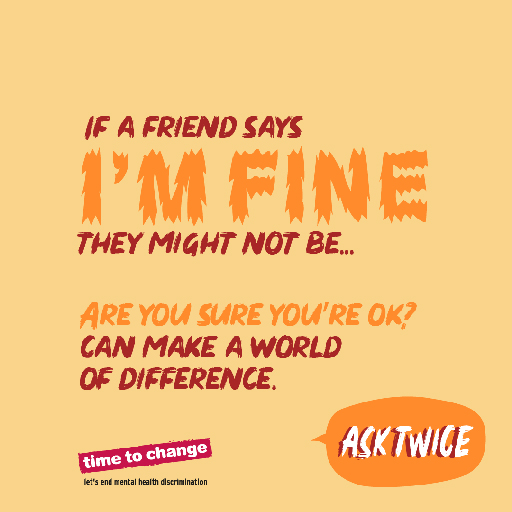4.1 Ask twice
In the UK, Time to Change (2007–2021) was a national campaign aimed at reducing the stigma surrounding mental health and at promoting earlier conversations around it. One key element, which has also been promoted elsewhere, and in various countries, is the idea of ‘asking twice’.
Figure 5 highlights that asking how someone is may not elicit a true response. For example, how many times do you ask, ‘How are you?’ and just use it as a common way of greeting someone? We all do this! Asking a second time implies more meaning behind the question and is therefore more likely to elicit a truthful response from the recipient. As the image suggests, asking ‘Are you sure you’re OK?’ can make a world of difference to the recipient and open up conversation rather than shutting it down.

